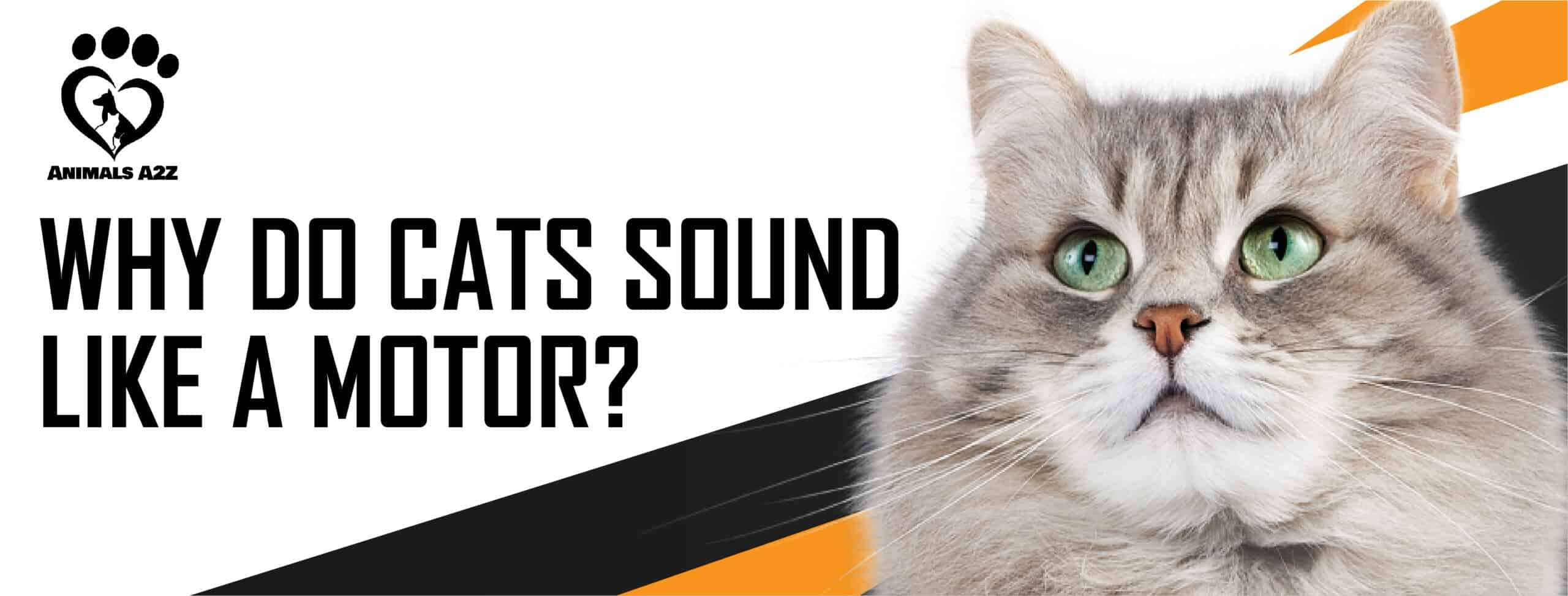Meows, hisses, or purrs! Since they can’t sing the ABCs or say “mama” they’ve found their way of expressing how they feel toward us. Cat’s make the effort to communicate with us through sound and body language. If your cat sounds like a motor this could either mean they’re happy, frightened, threatened, or stressed.
To know the difference, it’s important to look at what the circumstances are or what the situation your kitty is in. For more information, continue to read on as we explore the different meanings behind a purr.
Table of Contents
Purring
As an owner, you may have noticed your cat “vibrate”, while it’s sleeping, while they’re rubbing up against your leg, or even while they’re napping in front of you or on top of you. It makes you wonder if this is a cause for concern or if it’s just a quirk unique towards your feline friend. This vibrating sound is most commonly called a “Purr”.
Purring, and sounding like a motor, is one of the most basic sounds a kitten makes. At a young age, kittens associate purring with positive experiences such as playing, nursing, and grooming. Whenever a kitten feeds or is nursed by a mama cat, they make this gentle self-soothing sound.
While purring is most associated with happiness and contentment in cats, it can also mean they’re stressed, nervous, or afraid. They have associated purring with positivity thus in times of great stress or unease they purr to help soothe themselves. Purring is thought to release endorphins giving a comforting effect. But don’t be complacent just yet, take note of other behavioral changes to differentiate a happy purr from an afraid purr. Usually, when cats are afraid they fall silent and their body tenses up.
Scientists have theorized that the frequency of a cat’s purr (20-140 Hertz) helps promote tissue growth or even healing. The good news is, this doesn’t only benefit your furry friend; it is also considered medically therapeutic for humans. So just enjoy the motor sounds.
Below is an enumerated list of benefits a kitty’s purr provides their human counterparts:
- Petting a purring cat can help calm your nerves and also lowers blood pressure and stress in humans.
- Cat owners are also 40% less likely to suffer from heart attacks.
- Purr vibrations promote the healing of swelling and infected areas.
- A cat’s purr can also decrease symptoms of dyspnea for both humans and cats.
- Frequencies of up to 25 and 50 hertz promote bone healing and strength.
- The vibrations also help promote healing of soft tissue injuries from muscles, tendons, and ligaments.
[crp]
More questions about the noises a cat make
There is a multitude of reasons as to why cats make noises, the main one being, communication. It’s their way of letting us know they’re hungry, happy, uncomfortable. Over the years they have evolved and become domesticated to learn how to use sounds to catch our attention and show emotions.
A few of the most common sounds a cat makes are meowing, purring, hissing, chattering, and even chirping! Over the years they have identified at least 16 different ways cats communicate. The sounds they make can be roughly translated into the human language with observation, deduction, and sympathy.
This way, you start to learn and understand your cat more, his behavior, and his personality!
There are several speculations as to how cats purr, three of which are enumerated below:
– Rapid movement in the bloodstream results in a slight tremor in the chest and windpipe area.
– This tremor resonates inside their skull cavities resulting in a purr.
– The larynx and diaphragm muscles expand and contract which results in vibration.
– Larynx vocal folds and muscles to contract and dilate while constricting the opening of their vocal chords making the air vibrate, producing a purring sound.
Video: Can Cats purring heal you?
Conclusion
The most common reason as to why your cat sounds like a motor sometimes is because they purr. When they purr it is usually a sign that they are happy or contented. If they purr and rub against you this means they are pleased with your company and it is their way of showing their affection towards you.
Make sure to check for behavior stating otherwise, since cats also purr as a way of comforting themselves in times of fear. Other signs of a threatened cat include hissing, ears drawn backward, constricted pupils, and fur standing on the end of their backs.
It seems as though our pets might be able to alleviate us from our problems, or at least make those concerns appear less significant. Cats provide us with more than just emotional support, but they also contribute to our physical health. The relationship between pets and owners might never be entirely understood, but it is still comforting to know that keeping a furry friend by your side to love and share memories with, adds years to your life.


